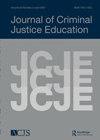穷人的再分配:监狱、医院以及法律和财政危机
IF 0.9
Q3 CRIMINOLOGY & PENOLOGY
引用次数: 0
摘要
sociol@northwestern.edu描述:每当提起美国城市的大型监狱和公立医院的话题时,一个想法就会出现在脑海中。人们普遍认为,由于我们作为一个社会减少了对公共卫生的投资,病人和穷人现在发现自己处于刑事司法机构的管辖范围之内。在《穷人的再分配》一书中,人种学家和历史社会学家阿曼多Lara-Millán带领我们进入了世界上最大的医院和监狱系统的日常运作,并认为这种公认的智慧是对21世纪之交国家治理城市贫困方式的严重错误描述。他的“重新分配穷人”的想法不是关注我们在卫生方面的投资不足和在刑事司法方面的投资过度,而是关注国家机构如何在不同的机构空间之间分配人员,从而为一些机构创造收入,为另一些机构削减成本,并产生服务已合法提供的错觉。通过以国家使用再分配为中心,Lara-Millán展示了某些形式的社会苦难——主要是穷人和有色人种的过早死亡——如何不是国家未能采取行动的结果,而是所谓成功政策的必然结果。2023年3月30日星期四下午12:30-2:00本文章由计算机程序翻译,如有差异,请以英文原文为准。
Redistributing the Poor: Jails, Hospitals, and the Crisis of Law and Fiscal
sociol@northwestern.edu Description: Whenever the topic of large jails and public hospitals in urban America is raised, a single idea comes to mind. It is widely believed that because we as a society have dis-invested from public health, the sick and poor now find themselves within the purview of criminal justice institutions. In Redistributing the Poor, ethnographer and historical sociologist Armando Lara-Millán takes us into the day-today operations of running the largest hospital and jail system in the world and argues that such received wisdom is a drastic mischaracterization of the way that states govern urban poverty at the turn of the 21st century. Rather than focus on our underinvestment of health and overinvestment of criminal justice, his idea of "redistributing the poor" draws attention to how state agencies circulate people between different institutional spaces in such a way that generates revenue for some agencies, cuts costs for others, and projects illusions that services have been legally rendered. By centering the state's use of redistribution, Lara-Millán shows how certain forms of social suffering the premature death of mainly poor, people of color are not a result of the state's failure to act, but instead the necessary outcome of socalled successful policy. Thursday March 30, 2023 12:30-2:00pm
求助全文
通过发布文献求助,成功后即可免费获取论文全文。
去求助
来源期刊

JOURNAL OF CRIMINAL JUSTICE EDUCATION
CRIMINOLOGY & PENOLOGY-
CiteScore
1.90
自引率
36.40%
发文量
52
期刊介绍:
The Journal of Criminal Justice Education (JCJE) is an official publication of the Academy of Criminal Justice Sciences (ACJS). JCJE provides a forum for the examination, discussion and debate of a broad range of issues concerning post-secondary education in criminal justice, criminology and related areas. The aim of JCJE is to enhance the quality of higher education in criminal justice and criminology. JCJE is an education-oriented journal for those undertaking educational and academic endeavors in the fields of criminal justice and criminology. Quality articles that address specific educational or academic issues in these areas are encouraged and will be considered for publication.
 求助内容:
求助内容: 应助结果提醒方式:
应助结果提醒方式:


